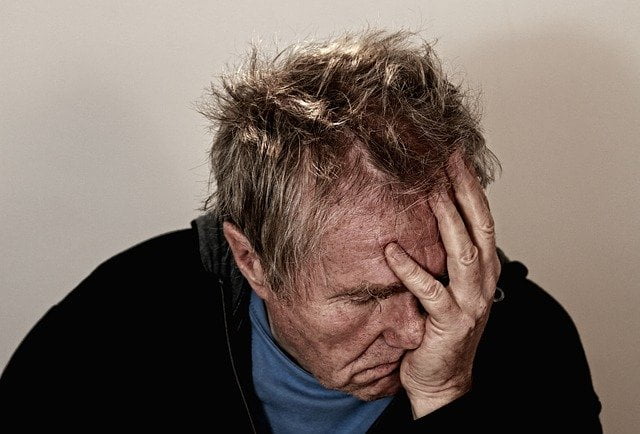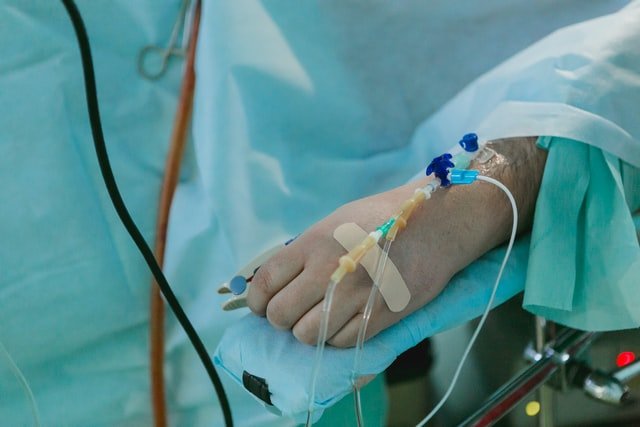Zoloft & Alcohol: Is it Safe to Mix?
Zoloft, or Sertraline, is an antidepressant medication which is prescribed in order to treat patients who are suffering from a range of mental health issues.
The name ‘Zoloft’ is the brand name for sertraline, which is a selective serotonin reuptake inhibitor (SSRI).
The purpose of this medicine is to restore the natural balance of serotonin levels in the brain.
Serotonin is a hormone which can help us regulate our feelings and moods such as happiness and anxiety, and fluctuating or imbalanced levels of serotonin can have an impact on our emotions and behaviour.
People who take Zoloft or Sertraline are typically suffering from conditions and symptoms such as:
- Clinical Depression: People who are suffering from symptoms such as hopelessness, persistent low moods, worthlessness, guilt, helplessness, suicidal ideation, a lack of interest in previously engaging activities, social isolation, and so on. Zoloft is commonly used as a form of treatment for depression.
- Anxiety: Zoloft is also used to treat patients suffering from anxiety and its symptoms such as intense fear, worry and trepidation, psychomotor agitation which means intensely nervous energy, restlessness, and so on.
- Post Traumatic Stress Disorder (PTSD: Zoloft is the first medication which has been prescribed to treat PTSD. PTSD is a condition where a traumatic event, whether it be war, physical harm, witnessing death, and more, causes a brain injury and subjects are not only unable to communicate their issues but they will suffer from intense feelings of anxiety, depression, hypersensitivity to actions, fear of particular environments, nightmares, and so on.
- Obsessive Compulsive Disorder: A mental health condition where the subject is suffering from obsessive and compulsive thoughts and behaviours.
It is important that patients follow their doctor’s instructions and the prescription’s conditions carefully.
Reducing the dosage of Zoloft can lead to mild to severe withdrawal symptoms.
Increasing the amount of Zoloft or sertraline which is consumed, on the other hand, can lead to symptoms of serotonin syndrome.
Without the proper guidance or instructions, toying with the dosage of Zoloft can have a significant effect on someone’s physical or psychological well being.
Different patients will of course consume a lower or higher level of Zoloft or sertraline to other patients depending on their conditions and their unique needs.
The amount of Zoloft or sertraline which is prescribed to a patient can change how they respond physically to the drug, and also the conditions of how they should approach consuming other substances, such as alcohol.
Overcome Zoloft addiction with help from a drug and alcohol rehab by calling our team on 0800 088 66 86
What are the Effects of Zoloft?

Zoloft is prescribed in order to help patients experience an increase in mood, improved sleep quality, higher energy levels, and an improvement in overall mental well-being.
When someone is suffering from mental health conditions such as depression, anxiety, or PTSD, taking Zoloft (in optimal quantities as prescribed by a doctor) can help them perform tasks related to their occupation or studies, and to function optimally on a day-to-day basis.
Zoloft or sertraline increases the production of serotonin in the brain, and this helps regulate the emotions that patients experience.
By taking Zoloft, patients will feel much calmer, more focused and better equipped to engage in daily activities.
Discover how a drug and alcohol rehab can help you by giving us a call on 0800 088 66 86
Is Zoloft Addictive?

There is much debate as to whether Zoloft is addictive or not. While some studies suggest that Zoloft is not addictive, others will note that it is a mind-altering substance, and that it can create a dependence because of the withdrawal symptoms that occur when someone suddenly abstains.
In fact, it is reported that around half of the people who consume Zoloft experience withdrawal symptoms when they abstain.
However, people who are consuming Zoloft to treat their symptoms of depression and social anxiety disorders are often consuming Zoloft for months or even years.
If it has the capacity to make someone dependent on it, it is not nearly as addictive to the same extent as other drugs or alcohol.
Regardless, if it has the ability to present withdrawal symptoms once someone suddenly decreases their dosage or abstains entirely, it is possible to become dependent on Zoloft.
Because of this, it is important to listen carefully to a doctor’s instructions and not to decrease the dosage independently.
It is highly advised that patients who want to decrease their dosage or stop consuming Zoloft altogether consult their doctor.
The doctor may devise a plan to ‘taper’ from Zoloft in order to help patients eventually stop consuming the substance.
Some of the withdrawal symptoms associated with Zoloft include but are not limited to:
- Mood swings
- Irritability
- Nausea
- Headaches
- Tiredness
- Insomnia
- Tingling on skin
How long these withdrawal symptoms last is entirely dependent on the subject.
Factors such as their mental health status, dosage and medical history will have an effect on how prevalent or severe these withdrawal symptoms are. These symptoms may persevere for as short as a few days to as long as a few weeks.
Don’t let addiction control your life – get the help you need from a drug and alcohol rehab by calling us today on 0800 088 66 86
Poly-Drug Use: What Happens When You Mix Zoloft With Alcohol?

The term ‘poly-drug use’ refers to the consumption of two or more substances, whether legal or illegal, at the same time.
This does not mean that it refers to the act of consuming both substances together and simultaneously, but that the two substances are having an effect on the mind and body at the same time.
A majority of the population consumes alcohol once a week or even more frequently.
Since alcohol has been normalised in our society and there is a strong drinking culture in many countries, people may be wondering whether they can consume alcohol while they are on medication such as Zoloft.
Alcohol, like Zoloft, is a mind-altering substance. Alcohol is a depressant which slows down the level of activity in the brain and the central nervous system, making people feel more relaxed in the short term, however, it can incite feelings of anxiety, irritability, and depression during the withdrawal stages.
This is especially the case for people who are physically or psychologically dependent on alcohol.

On the other hand, Zoloft seeks to enhance the communication between neurotransmitters, which are essentially messengers in the brain.
If someone is consuming Zoloft, which increases the activity or messaging between messengers in the brain, and also consuming alcohol which decreases the level of activity in the brain, the brain and central nervous system are receiving contradicting and polarising influences.
Furthermore, the Food and Drug Administration (FDA), which is responsible for protecting public health by ensuring that particular foods and drugs are safe for public consumption in the United States, advises against consuming alcohol while also being under medication such as Zoloft.
If you mix Zoloft with alcohol, you may suffer from symptoms such as:
- Heightened anxiety and depression: Mixing Zoloft with a depressant such as alcohol can cause a greater sense of anxiety and depression. This is because alcohol affects the chemical balance in the brain responsible for producing dopamine and serotonin. Studies also show that moderate to excessive alcohol consumption has an impact on the functioning of serotonin receptors, and that abnormal serotonin levels can contribute to the development of alcohol dependence.
- Lethargy and drowsiness: Since alcohol is a depressant, it decreases activity in our brain and central nervous system, making us feel more drowsy and experiencing a loss in motor skills and coordination.
- Disrupted sleep: Although alcohol can make us feel much more tired, it affects our quality of sleep. People who consume alcohol may find it easy to fall asleep, however, their REM sleep cycle, which is important towards regulating emotions, fostering memorisation and developing new skills, is greatly impaired.
- Impaired cognition: In addition to impaired coordination and motor skills, people who are consuming Zoloft and alcohol may suffer from impaired cognition because their brains are receiving conflicting messages from different substances. Alcohol especially impairs people’s ability to process information and also their inhibitions, making them more susceptible to making decisions which are unwise and impractical.
Regardless of whether someone is consuming Zoloft or not, consuming alcohol can have a profound effect on the mind and body.
Consuming alcohol in frequent and excessive quantities can expose people towards developing a physical dependence on the substance.
When this happens, they will not only be dependent on the substance, but they may suffer from a range of mental health conditions such as anxiety and depression.
Alcohol is not the only substance which may have adverse effects on the mind and body when mixed with Zoloft.
There are many other substances, when mixed with Zoloft (or even consumed by themselves), can create or intensify the symptoms which causes people to be under medication such as Zoloft.
- Cannabis: Consuming cannabis, in addition to Zoloft, can increase the user’s heart rate and blood pressure. It can also heighten their sense of anxiety and paranoia, which are some of the symptoms which lead to people consuming Zoloft in the first place.
- Stimulants (e.g., Cocaine, MDMA, Heroin): Stimulants like these have a profound effect in increasing heart rate and blood pressure, which again can create mixed signals for the receptors and messengers in the brain.
Whatever the nature of your addiciton, let our expert team help by calling us on 0800 088 66 86
Long-Term Effect of Mixing Zoloft and Alcohol

In addition to the short-term and common side effects which are associated with mixing Zoloft and alcohol, patients who frequently mix the two are more likely to suffer from alcohol use disorder.
Alcohol use disorder, or alcohol addiction, is when someone is physically or psychologically (or both) dependent on alcohol.
Since someone who is already taking Zoloft is exposed to conditions and symptoms such as anxiety, depression, bipolar disorder, PTSD, and so on, it is not a good idea to consume a substance which can cause adverse reactions in our minds.
Frequently and excessively consuming alcohol can lead to addiction. This is because while alcohol may make us feel happy and relaxed in the short term, it can affect the reward pathways in our brain.
These reward pathways (which are called the mesolimbic pathways) are responsible for the production of dopamine in our brain.
Dopamine is the ‘feel good’ chemical we experience once we complete a task at work, a bout of exercise, have sexual intercourse, and so on.
The more we consume alcohol, the more dependent we become on the substance in order to bring us temporary pleasure and euphoria.
This means that the person will begin to struggle to produce dopamine naturally, and will need to keep turning towards alcohol (or other drugs) in order to stimulate its production.

In turn, subjects may begin to experience symptoms such as anxiety, irritability, depression, fatigue, lethargy, and more when they are abstaining from their addictive alcoholic substance.
If the dependence is severe enough, alcohol withdrawal symptoms can lead to seizures, stroke, and even death.
Treatment for alcohol use disorder is imperative if patients not only want to overcome addiction but want to overcome the negative and depressive symptoms which are experienced by many people who receive a Zoloft prescription.
There is a strong correlation and a mutually destructive relationship between drug and alcohol addiction with mental illnesses such as anxiety and depression.
In fact, a UK Government study discovered that around 63% of patients who were admitted into rehab for addiction were also suffering from mental health issues.
While conditions such as depression can make people more susceptible to developing an alcohol addiction, alcohol addiction can also expose someone to developing depression or making existing depression symptoms worse.
To find out more about how a drug and alcohol rehab can help you beat addiction, call us on 0800 088 66 86
Co-Occurring Treatment for Alcohol Addiction and Mental Health Issues

If a patient is suffering from alcohol addiction and also mental health issues, they will be able to undergo concurrent treatment for their co-occurring disorders at a drug and alcohol rehab facility.
The patient will undergo a health assessment and diagnosis, and once the health practitioner, counsellor, or addiction specialist identifies that they are suffering from substance dependence and also a mental health condition, a dual diagnosis will be made in order to form a personalised plan to optimise their recovery.
Co-occurring treatment is imperative if patients want to recover optimally. Often, patients who are suffering from multiple conditions seek treatment for one condition instead of the other, rather than seeking treatment for both simultaneously.
This is suboptimal, and the problems between addiction and mental health conditions can be intricately interwoven. Because of this, patients will require concurrent treatment.
At a drug and alcohol rehab, patients will be able to recover from both forms of illnesses, while undergoing treatment at a medically supported facility.
At their rehab, they will be able to undergo a range of therapy and counselling sessions, as well as relapse prevention planning in order to help them not only recover but maintain their sobriety.
Beat addiction once and for all at a drug and alcohol rehab near you – call us today on 0800 088 66 86




